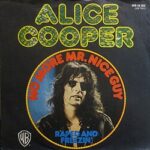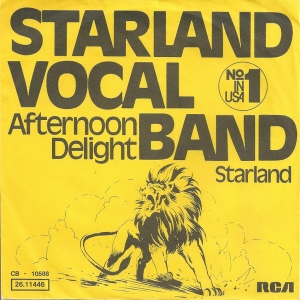 Alice Cooper’s No More Mr. Nice Guy, released in 1973 on the album Billion Dollar Babies, is one of the quintessential anthems of rock rebellion. The song perfectly encapsulates Cooper’s persona: theatrical, provocative, and unapologetically confrontational. With its crunchy guitar riffs, driving rhythm, and biting lyrics, the track stands as both a narrative of personal defiance and a broader statement against societal expectations. Over the decades, it has become an iconic expression of rock’s playful yet menacing edge, a song that continues to resonate with fans of rebellion, theatricality, and pure rock ’n’ roll energy.
Alice Cooper’s No More Mr. Nice Guy, released in 1973 on the album Billion Dollar Babies, is one of the quintessential anthems of rock rebellion. The song perfectly encapsulates Cooper’s persona: theatrical, provocative, and unapologetically confrontational. With its crunchy guitar riffs, driving rhythm, and biting lyrics, the track stands as both a narrative of personal defiance and a broader statement against societal expectations. Over the decades, it has become an iconic expression of rock’s playful yet menacing edge, a song that continues to resonate with fans of rebellion, theatricality, and pure rock ’n’ roll energy.
The track opens with a powerful guitar riff, immediately establishing an assertive tone that sets the stage for Cooper’s sardonic lyrics. The instrumentation is straightforward but effective: electric guitar, bass, and drums interlock to provide a strong rock foundation while allowing Cooper’s vocals to take center stage. The production has a raw, energetic quality typical of early 1970s hard rock, preserving the urgency and rebellious spirit of the performance. Even decades later, the song’s opening chords remain instantly recognizable, a signature of its enduring appeal.
Vocals and Persona
Alice Cooper’s vocal delivery on No More Mr. Nice Guy is both sneering and theatrical. He alternates between sardonic humor and defiant intensity, perfectly embodying the song’s narrative perspective. The lyrics describe a man reacting to social judgment and hypocrisy, and Cooper’s performance gives the impression that he is both mocking and embracing his “bad boy” reputation. His voice conveys sarcasm, anger, and amusement simultaneously, capturing the contradictory feelings of someone challenging societal norms while enjoying the chaos that comes with it.
Cooper’s vocal phrasing adds nuance to the storytelling. He emphasizes certain words and phrases to maximize their dramatic impact, creating a dynamic performance that feels larger than life. The theatricality is a hallmark of Cooper’s artistry; he doesn’t merely sing the lyrics, he inhabits them, turning a simple rock song into a mini-drama about defiance, frustration, and personal liberation.
Lyrics: Satire Meets Defiance
Lyrically, No More Mr. Nice Guy is a blend of satire, self-assertion, and commentary on societal expectations. The song addresses the judgmental attitudes of family, neighbors, and critics, presenting the narrator’s decision to abandon his attempts at conformity. Lines such as “No more Mr. Nice Guy, they say he’s sick / They’re gonna clean him up, they’re gonna fix him quick” convey a sense of rebellion against imposed morality and social norms. Cooper transforms a personal narrative into a universal declaration of resistance.
The lyrics are clever and memorable, using repetition and wordplay to enhance their impact. The chorus—simple, catchy, and direct—becomes an anthem for anyone who has felt pressured to suppress their true self. By blending humor with defiance, Cooper ensures that the song entertains while also conveying a pointed critique of societal hypocrisy. This combination of wit and edge is part of what makes No More Mr. Nice Guy timeless.
Guitar Riffs and Musical Energy
The guitar work in No More Mr. Nice Guy is emblematic of early ’70s hard rock: crisp, melodic, and driving. The main riff is instantly recognizable, looping with a sense of urgency that mirrors the song’s narrative tension. The guitar tone is raw yet polished enough to create a hook that sticks in the listener’s mind. Solos and fills punctuate the verses and chorus, adding intensity without overshadowing the storytelling.
The rhythm section—bass and drums—anchors the track with tight, propulsive grooves. The drums maintain a punchy, energetic beat that drives the song forward, while the bass adds both depth and punch. The interplay between the instruments creates a dynamic, cohesive sound that complements Cooper’s vocal performance. The musical arrangement reinforces the song’s narrative, giving a sense of forward motion and unstoppable momentum, perfectly reflecting the protagonist’s decision to shed his “nice guy” image.
Theatricality and Stage Persona
No More Mr. Nice Guy is inseparable from Alice Cooper’s stage persona. The song was designed to be performed with theatrical flair, and its energy translates seamlessly to live settings. The narrative of rebellion, confrontation, and sardonic humor is amplified on stage, where Cooper’s exaggerated gestures, dark makeup, and dramatic presence bring the lyrics to life. The song captures the essence of Cooper’s blend of rock and theatrical performance, a combination that has influenced countless artists and cemented his status as a rock icon.
The track’s theatrical quality is also reflected in the music itself. Changes in dynamics, dramatic pauses, and emphatic phrasing all contribute to a sense of performance even in the studio recording. Listeners can almost visualize the narrative playing out, whether it’s the protagonist standing defiantly against judgmental neighbors or Cooper himself performing with menacing humor. This blend of music and drama is one of the song’s defining characteristics, making it a standout track in both the album and Cooper’s broader catalog.
Humor and Irony
One of the unique aspects of No More Mr. Nice Guy is its humor. The song addresses serious themes—rebellion, societal pressure, and personal frustration—but does so with a wink. Cooper’s delivery, combined with clever wordplay and over-the-top phrasing, infuses the track with irony. The song’s humor makes its critique more palatable and entertaining, allowing listeners to laugh while still engaging with its underlying message.
This use of humor distinguishes No More Mr. Nice Guy from more straightforward hard rock songs. Cooper manages to balance menace and levity, rebellion and performance, creating a song that is both fun and thought-provoking. The irony adds a layer of sophistication to what might otherwise be interpreted as simple rock bravado, demonstrating Cooper’s skill as both a songwriter and a performer.
Cultural Impact and Legacy
No More Mr. Nice Guy has left an indelible mark on rock music and popular culture. It has been featured in films, television shows, and commercials, often used to convey rebellion, humor, or edge. The song helped solidify Alice Cooper’s image as a provocateur, a performer who blends music, narrative, and theatricality into a cohesive, unforgettable experience.
The track also influenced subsequent generations of rock musicians who sought to combine performance, narrative, and spectacle. Its balance of catchy riffs, memorable lyrics, and dramatic delivery became a blueprint for artists exploring the intersection of music and theatricality. Cooper’s approach demonstrated that rock songs could be simultaneously entertaining, critical, and performative, paving the way for future acts to experiment with persona and stagecraft.
Musicality and Technical Merit
From a technical standpoint, No More Mr. Nice Guy is deceptively sophisticated. The song’s straightforward chord progressions are elevated by nuanced guitar fills, dynamic drumming, and Cooper’s precise vocal phrasing. The arrangement allows each instrument space to shine while maintaining a cohesive sonic identity. The track’s hooks are memorable without being overbearing, demonstrating the band’s understanding of balance, melody, and pacing.
Cooper’s vocals, in particular, showcase his ability to convey character and emotion through subtle variations in tone, timing, and emphasis. He transitions seamlessly between sardonic mockery, defiance, and playful menace, demonstrating a mastery of vocal storytelling that is rare in rock music. The interplay between lyrics, vocal delivery, and instrumentation creates a multi-layered listening experience that rewards repeated attention.
Enduring Appeal
Decades after its release, No More Mr. Nice Guy remains a staple of classic rock radio and a fan favorite in Alice Cooper’s live shows. Its themes of rebellion, humor, and self-assertion continue to resonate with audiences, and its combination of narrative, musicality, and theatricality ensures that it has not aged. The song’s energy, catchiness, and wit make it accessible to new listeners, while its depth and performance sophistication reward long-time fans.
The track’s enduring appeal also lies in its universality. The feeling of being misunderstood, judged, or constrained by societal expectations is one that transcends time, and Cooper’s humorous yet pointed response speaks to listeners across generations. The song invites audiences to embrace their own quirks, reject unnecessary criticism, and celebrate individuality, making it as relevant today as it was in the 1970s.
Conclusion
Alice Cooper’s No More Mr. Nice Guy is a quintessential rock anthem, blending rebellion, theatricality, and humor into a single unforgettable track. Its combination of driving guitar riffs, dynamic rhythm, clever lyrics, and Cooper’s distinctive vocal delivery creates a song that is both entertaining and thought-provoking. By embodying a persona of defiance and sardonic charm, Cooper transforms a simple rock song into a narrative about personal freedom, societal critique, and unapologetic individuality.
The song’s enduring influence and appeal stem from its perfect balance of musical accessibility and performative sophistication. It is catchy, energetic, and playful, yet layered with narrative nuance, irony, and character. No More Mr. Nice Guy demonstrates that rock music can be both fun and meaningful, theatrical and relatable—a song that entertains, inspires, and continues to resonate with audiences decades after its initial release.
Alice Cooper’s anthem remains a blueprint for blending music, storytelling, and persona, securing its place in the pantheon of classic rock. It captures the thrill of rebellion, the humor of self-awareness, and the power of embracing individuality—a timeless reminder that sometimes it’s far more satisfying to cast aside the pretense of niceness and fully own who you are.


